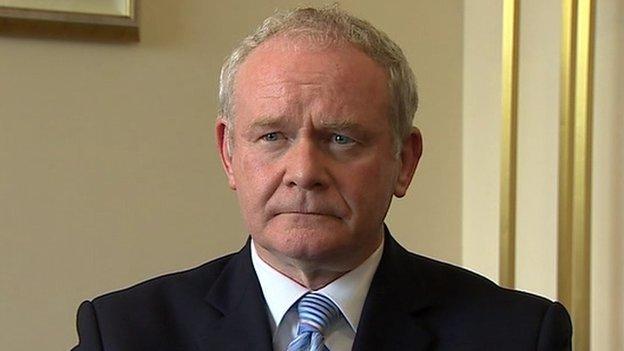Brexit divides Northern Ireland's exporters
- Published
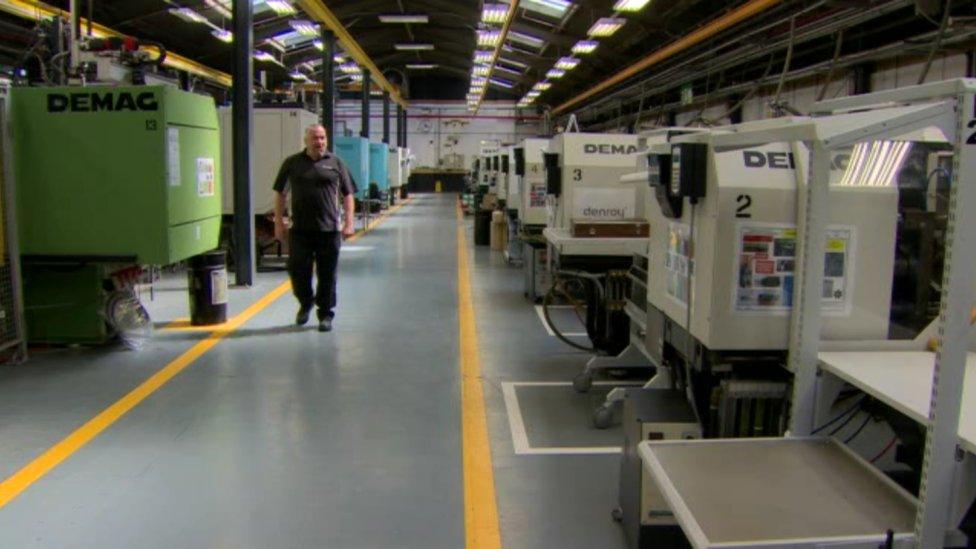
Bangor-based Denroy manufacture plastic goods, from hair brushes to aircraft parts
Much of the EU referendum debate in Northern Ireland has been around the economy and what is at stake for exporters.
These businesses are a cherished local species.
Take the Denroy Group in Bangor, employing 200 people making plastic products as diverse as hairbrushes and plane parts.
Its growth - and that of the wider economy - is all about external markets and it feels a UK exit from the EU is too much of a risk for business.
It is not alone.
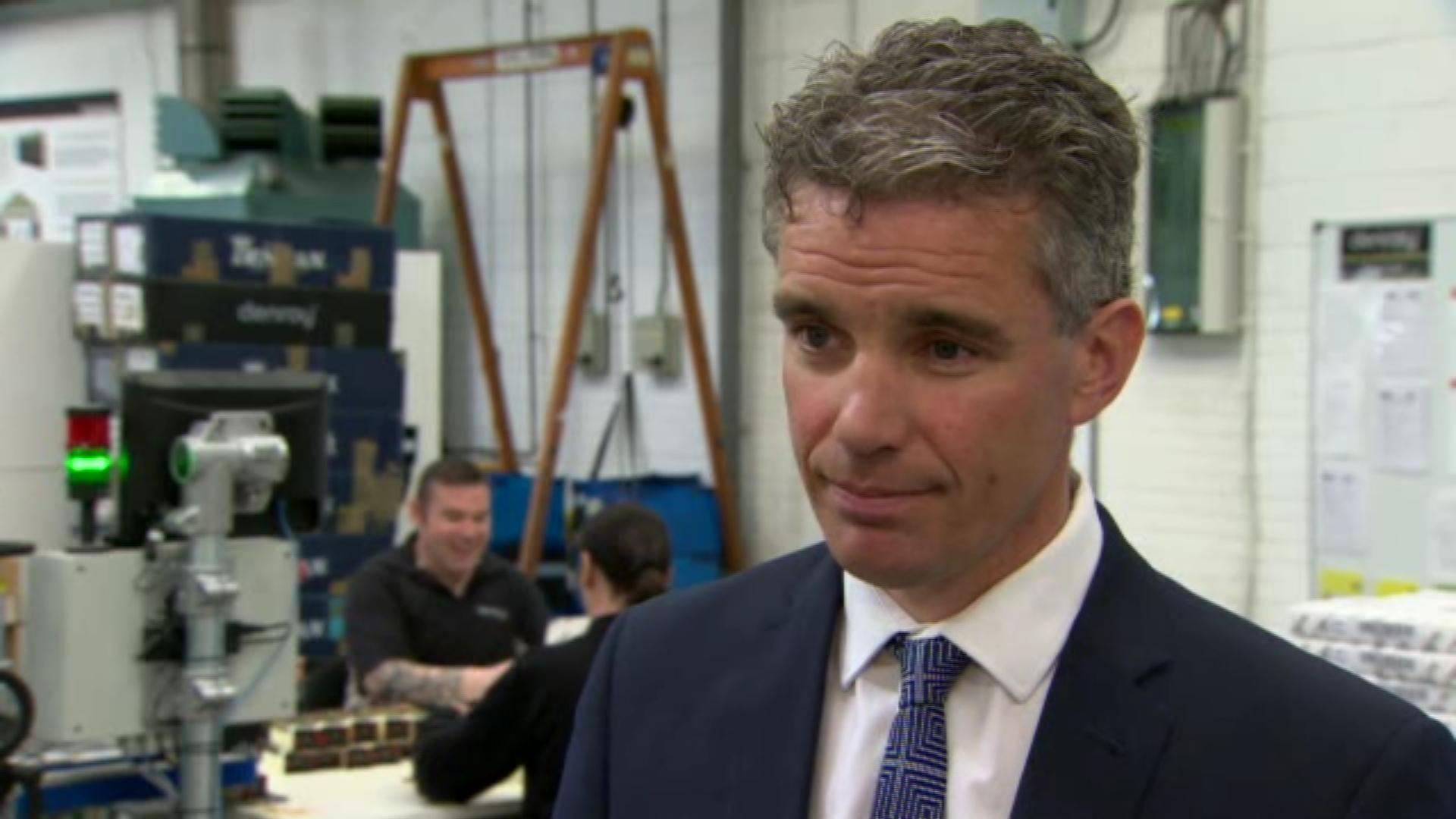
Worried by post-Brexit uncertainty: Kevin McNamee of the Denroy Group
Internal polling by three local business bodies suggests a majority of each of their memberships oppose a so-called Brexit.
"The uncertainty of an exit worries us," said Kevin McNamee, the finance director of the Denroy Group.
"It would mean new UK arrangements with the EU.
"If the UK has to renegotiate trade deals are they going to involve tariffs which impacts on our sales and competitiveness?"
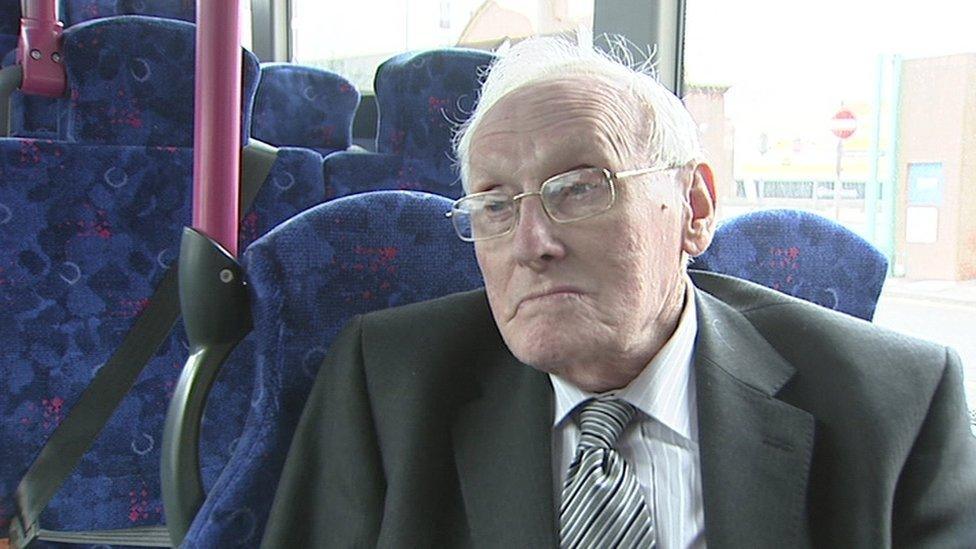
William Wright of Wrightbus believes the UK could make new trade deals in the world market if it leaves the European Union
But business supporters of a Brexit, such as William Wright of Wrightbus in Ballymena, argue the UK should see a bigger picture.
Free of the EU collective, they say, the UK could strike its own trade deals not just in Europe, but in other world markets.
Former Northern Ireland secretary of state Owen Paterson said: "We have an opportunity if we leave to really expand trade in the wider world."
Figures from the Department for the Economy reveal Northern Ireland sold products and services to the value of £66bn in 2014.
Leaving aside what we sell to ourselves (£43bn), Great Britain is our next biggest market (£13bn).
Exports to the EU were worth nearly £6bn and to the rest of the world £4bn.
It is those kinds of figures which are occupying minds in a good many boardrooms - if not necessarily the factory floor.
"You might get a different story there," admits Denroy's Kevin McNamee.
The priority issue at this referendum may divide boss and worker, but what they have in common is one vote.
- Published17 May 2016
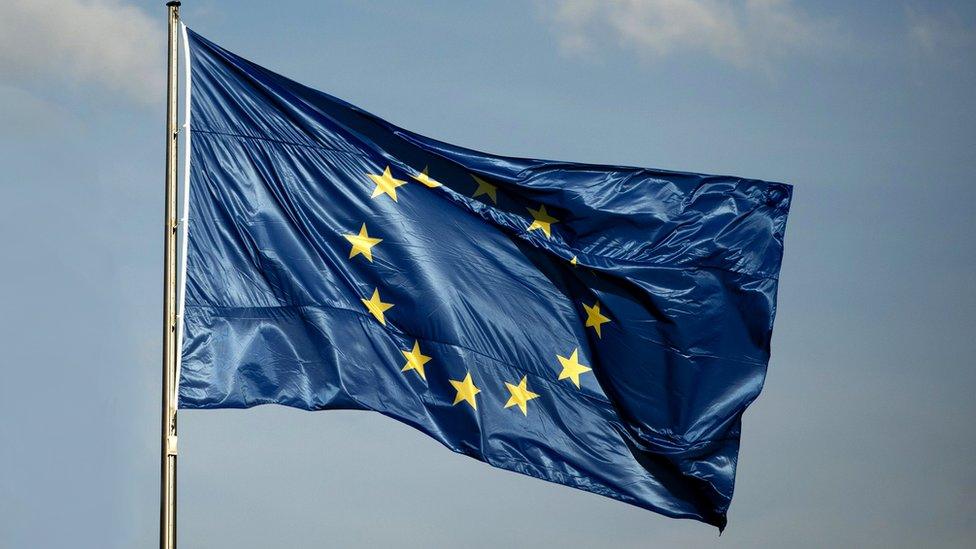
- Published22 April 2016
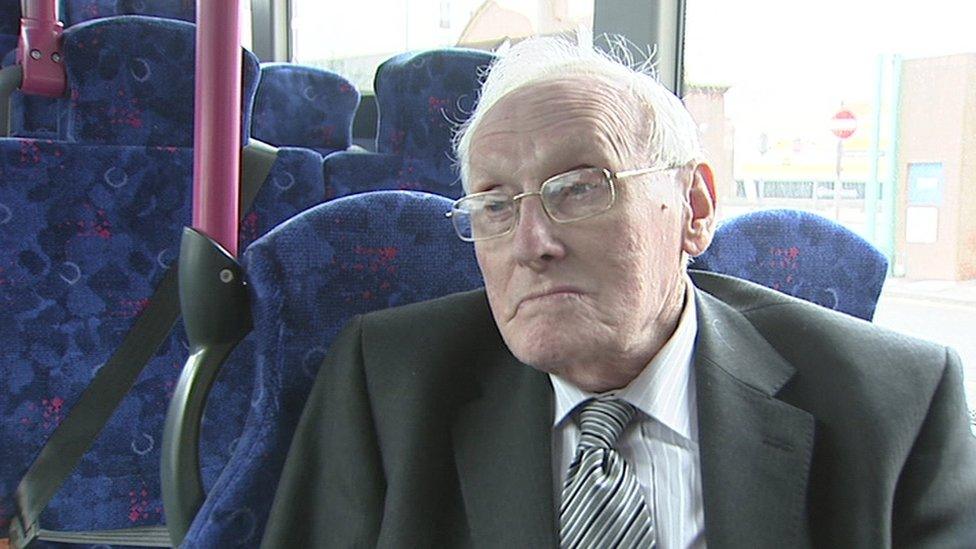
- Published22 February 2016
